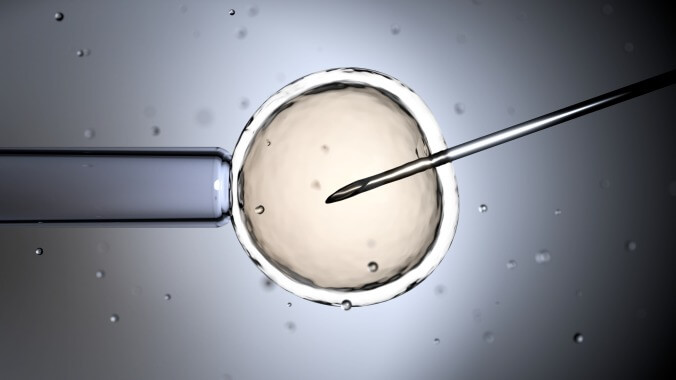What The U.S. Can Learn From The U.K. About IVF Access
A new study has revealed three-person IVF treatments can prevent parents from passing genetic problems onto their babies.
Photo: iStockphoto PoliticsScience
Three-ways are just better. Well, sometimes.
A landmark study published by the New England Journal of Medicine reveals parents can avoid passing genetic problems onto their babies using what’s called the “three-person IVF” method. The research, which follows the lives of eight children born in the U.K., reveals new insights into the groundbreaking—albeit controversial—technique.
Three-person IVF is, as you may have guessed, a spin on the standard IVF procedure. The latter, or “in vitro fertilization,” replicates the complex process of sexual production, wherein: in a lab, mature eggs are retrieved from ovaries, fertilized with sperm, and, if fertilized (thus becoming an embryo), placed into a uterus. Three-person IVF adds a third to tango—offering another egg donor. With a “mitochondrial donation,” any faulty mitochondria can be swapped for healthier ones, thus decreasing the risk of genetic diseases that can cause symptoms such as seizures, learning disabilities, and heart disease.
Unfortunately, three-person IVF is banned in the U.S., and the FDA is dodging questions about considering its approval. Having only been given the green light in the U.K. in 2017, it’s controversial for all reasons, from faith-based dogma to fears around genetically-modified “designer babies.”
-

-

-

-

-

-

-

-

-

-

-

-

-

-

-

-

-

-

-

-

-

-

-

-

-

-

-

-

-

-

-

-

-

-

-

-

-

-

-

-








































